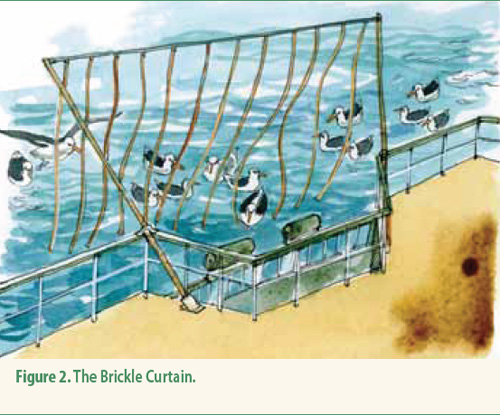The Southern Seabirds Solutions Trust (SSST), based in New Zealand, has established an International Mitigation Mentoring Programme to assist in the development of mitigation measures to reduce seabird mortality in fisheries.
A major obstacle is knowing who to talk to about ideas, what the various developmental and testing phases are, and how to fund the work. Many ideas have not progressed beyond the conceptual or early prototype stage, simply because the persons behind the ideas did not know what the next step should be.
The mentoring programme will provide feedback and advice to fishers, scientists, researchers and other inventors who have innovative ideas or early prototypes that could potentially reduce the risk of seabirds being caught by commercial or recreational fishers.
Barry Baker, Technical Advisor within the ACAP Secretariat and Convenor of its Seabird Bycatch Working Group, is coordinating the delivery of the SSST's Mitigation Mentoring Programme. The scope of advice includes feedback on design, guidance on development and testing, and advice on potential collaborators or funders. A referral group of 10 members has been established to lend their expertise on such topics such as fishing methods and practices, seabird behaviour, marine engineering, at-sea research, product development, fundraising expertise and ways to introduce new practices into fisheries.
Fishers, scientists and researchers with a new mitigation idea should consider contacting Barry Baker via
A Mitigation Development Pathway sets out a way to take a mitigation idea from concept to adoption. It also includes case studies, telling the stories of other seabird mitigation ideas and devices.
This project is sponsored by WWF, Sealord, Sanford Ltd., Encounter Foundation and Maersk Line. The Southern Seabird Solutions Trust is financially supported by the New Zealand Seafood Industry Council and the New Zealand Department of Conservation.
See also the WWF International Smart Gear competition.

John Cooper, ACAP Information Officer, 3 July 2011, updated 5 July 2011

 English
English  Français
Français  Español
Español